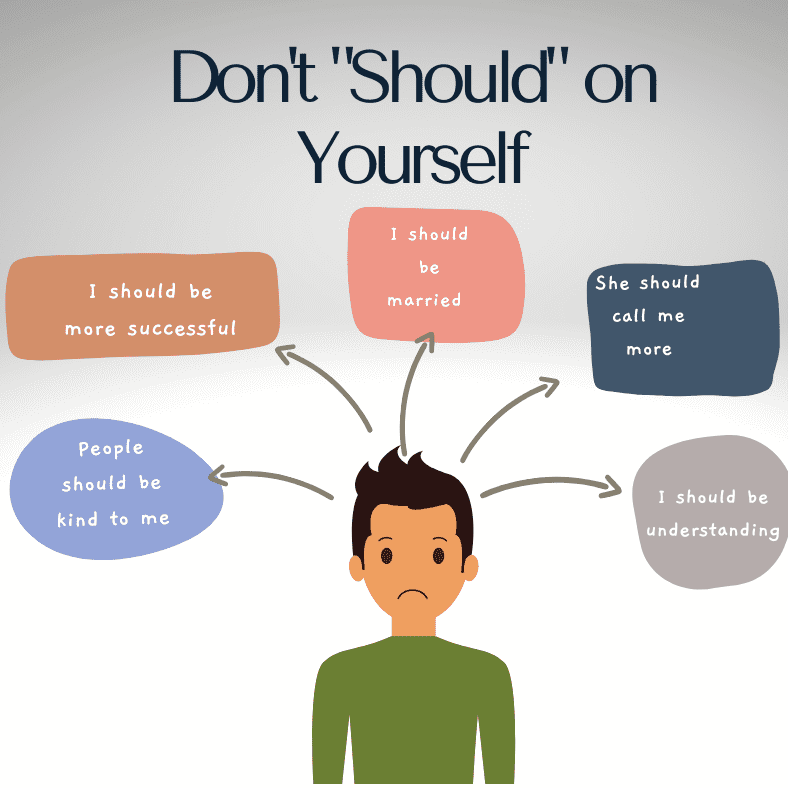Having values, goals, principals, and expectations is normal. But when these healthy inclinations become internal rules, such as "shoulds," and "musts," then there may be a big problem. A “should” statement is a type of negative pattern of thinking that is rigid and places unreasonable demands and pressure on a person and can influence a range of difficult emotions, such as doubt, failure, incompetence, and guilt, to name a few. This type of faulty thinking is a form of cognitive distortion and can create conditions in a person’s perception that can be unhealthy.
According to theory based in cognitive therapy, thoughts play a huge role in how we feel and behave. Negative thinking and “should” statements often cause people to develop stress and can lead to other mental health conditions. Some of the other words that are associated with these types of statements include “must” and “ought”.
People who have anxiety and/or depression will often use these types of statements when they are describing things that are happening in their lives, or when describing themselves. They feel that they should or must do or not do something. When they fail or fail to act, it can lead to a more negative and pessimistic view of life. Others might find that the use of these types of statements can cause increased anxiety, as well as avoidance behaviors.
Examples of “Should” Statements
These types of statements can be present in many areas of our lives. Let’s take a look at a few examples.
- I should be married.
- I should be further along in my career.
- I must lose weight.
- I must look attractive
- People should be more considerate.
- I should be calm.
- I should not feel overwhelmed or mad.
- I should be more understanding.
- I should call my family more.
- He should’ve called me back.
- People should like me.
Although these statements might seem harmless to some, they have the potential to cause unneeded pressure and distress. They are negative ways of thinking and can often make a person feel frustrated when they don’t do or achieve what they put in their should statements.
Overcoming the “Shoulds”
It can be difficult to break away from using these pesky negative statements. Often, they become commonplace in our lives and unconsciously influences us. So you might not even realize that you are “shoulding” on yourself (pardon the pun). Fortunately, you can do something about it.
- Start by raising your awareness of the “should” pattern of thinking. A good clue to stop and observe your thoughts is when you’re feeling a strong uncomfortable emotion.
- Write it Down! Put that thought into words.
- Consider why you are putting pressure on yourself.
- Change the thought. Challenge, argue and/or find exceptions to this belief. Take a more objective view or reframe the thought (find a positive twist).
- Speak to yourself like a loving parent, with patience and understanding.












